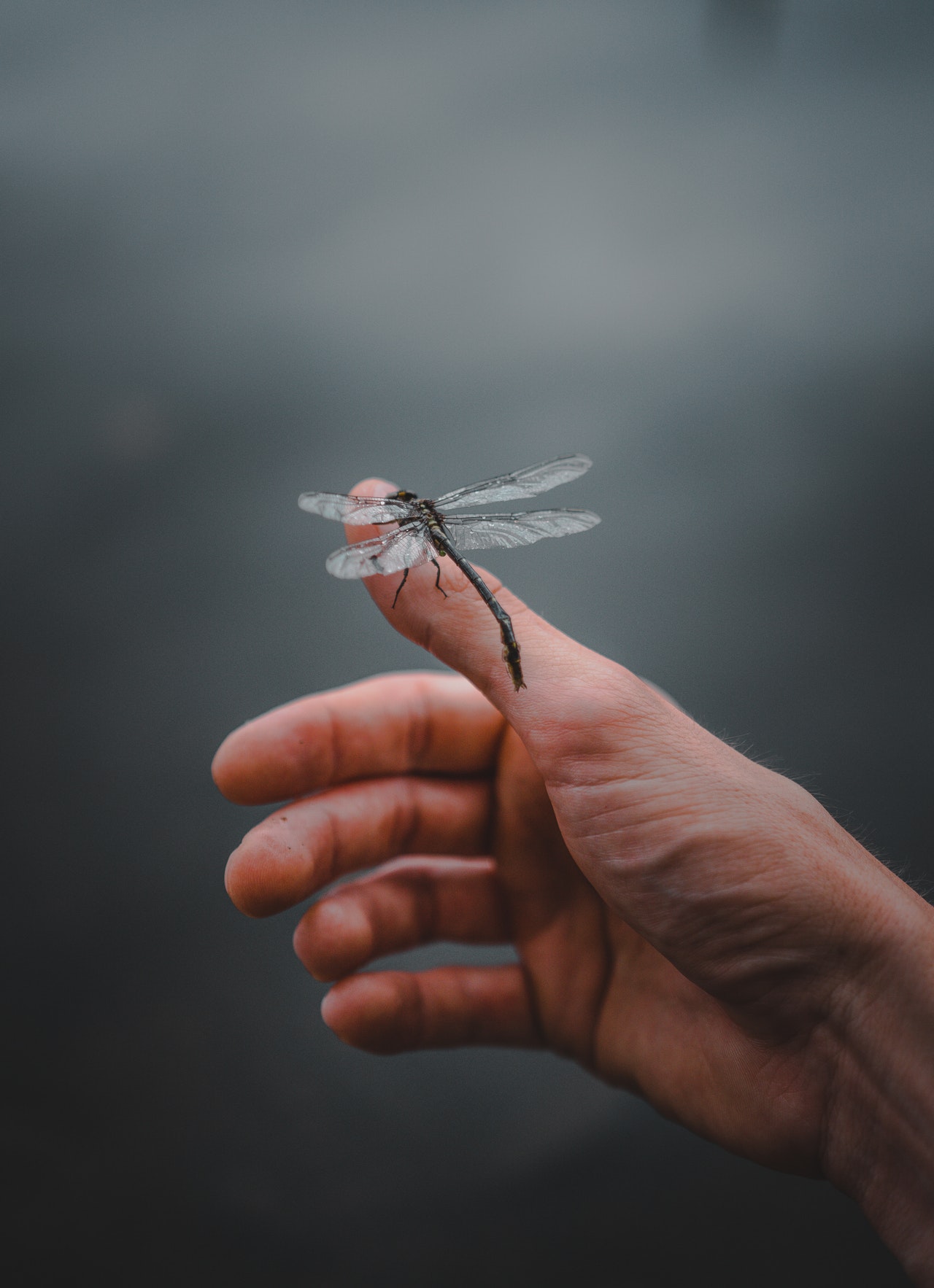
“There were many odd things about human beings. They thought insects were disgusting but felt lucky when a ladybird landed on their fingers. They detested rats but loved squirrels. While they found vultures repulsive, they thought eagles impressive.” ~ Elif Shafak, Honor
This past month I have been really enjoying the show “Getting Curious” with Jonathan Van Ness.
Jonathan is an excellent protagonist for a show like this, approaching each subject with earnest curiosity and that same infectious enthusiasm we’ve all come to love him for on “Queer Eye.”
In this episode, Jonathan sets out to reconcile his mixed feelings about bugs through learning more about them. One part of him finds them distasteful. Another part wonders if he should take a more enlightened stance. He questions whether he can learn to appreciate bugs enough to spare them the freedom to live, rather than indulge the impulse to reflexively crush an errant spider he sees unwelcomedly wandering his kitchen counter.
A recent moment I spent out in nature exemplifies how much I relate to this quandary. Partway into reading beneath a redwood tree, I felt a tickle against my leg; I looked down to find an ant and a ladybug crawling side by side. My immediate reaction, which was to flick the ant off but let the ladybug stay, brought to mind the passage by Elif Shafak that I opened this entry with.
Why is it that we value certain insects over others? I asked myself in that moment. I reflected on how we’re tolerant, even cautiously accepting of the pretty ones, but unsettled by the aesthetically unappealing. We might even become self-righteous in our insistence on eliminating them from our spaces—forgetting, sometimes, that we’re actually the ones on their turf.
I wondered if one day we will have come to accept all species equally once we have unlearned our ingrained belief in the correlation between beauty and goodness—or if our instinctual disgust and disdain toward flies, unabashed squishing of spiders, second-nature stomping on ants, and trapping of bees under cups until they slowly perish will persist.
In his quest to become more insect informed, Jonathan talks to an entomologist who shines light on these tiny creatures’ importance, explaining how they teach us about different ways we can fly, biodiversity, and medicine, as well as how they’re the future of food.
She enlightens a mesmerized and wide-eyed Jonathan about how dragonflies have two penises—one of which scrapes away the sperm left behind by the males that his current sex partner mated with prior to him.
Another expert shows him an insect that disguises itself as a leaf to ward off attack by predators. And in his visit to an arachnid specialist (whose goal is to raise his discomfort with spiders up from a three to somewhere above a five), Jonathan enthusiastically recreates the feel of spider sacks for any viewer who has not felt one themselves (which is likely many), “Strong like steel wool but soft like a baby cotton”—the most interesting texture he’s ever felt.
I found the part of the episode when Jonathan goes insect-tasting at a high-end kitchen to be particularly interesting. The chef, who’s laid out several little, bug-filled tasting bowls for Jonathan to spoon from, explains to him that ants taste citrusy because of the formic acid (“releasing it is a defense mechanism they have”). Crickets, meanwhile, give off a nutty flavor, for which reason he pairs them with dishes like mushrooms.
As I watched this scene, I thought back to the time I ate grasshoppers. A waiter sprinkled them atop my guacamole at a restaurant in Mexico City a couple years ago. They tasted crunchy, slightly salty, and flavorful. I also recalled how the gift stores at the science museums I went to as a kid sold lollipops with bugs inside them (though I always stuck to the safer option of Tootsie Roll fillings).
We learn that bugs are not only nutritious but that consumption of them incurs less of a cost for our planet, as they take up significantly less space to raise than cows.
I understand the push-pull back and forth of Jonathan’s philosophical predicament. One day, I’m believing wholeheartedly in the wisdom of sentences like, “Little did they understand that the things they disliked were just as essential for the Cycle of Life as the things they so treasured. In this world every creature was made to challenge, to change and to complete something else” (from the book Honor).
The next I’m sharing a room with a buzzing fly, and all this enlightened thinking has flown out the window just like I wish the fly would do. Out comes the rolled up magazine.
As we come to see, as is the case with many questions, the answer to this one (“are bugs beautiful or gross?”) is not so simple or black and white. As Jonathan declares toward the end of the episode, bugs are both beautiful and gross. We can hold these two opposing truths in our minds simultaneously.
After watching, it’s possible you’ll come away with a more nuanced perspective on bugs too. Perhaps you’ll pause before squishing one. Or maybe as the thought “you’re gross” crosses your mind, so too will the realization “you’re also kind of fascinating.”
Or as Jonathan put it: “The next time we think about stomping on a bug, let’s think about casting them in a movie instead!”
“If all mankind were to disappear, the world would regenerate back to the rich state of equilibrium that existed ten thousand years ago. If insects were to vanish, the environment would collapse into chaos.” ~ E.O Wilson
~


 Share on bsky
Share on bsky




Read 16 comments and reply